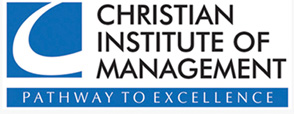4-Month Course onFinancial Management
designed for staff of NGOs, Churches, etc.
Course Objectives
Biblical Understanding
To develop Biblical understanding of Stewardship relating to management of financial resources
Equipping Leaders
To equip leaders to manage financial resources effectively
Maintenance of Records
To equip to keep financial records systematically
Latest Updates
To update on the latest requirements relating to Financial laws (IT, FCRA, GST etc.)
Who is this course for?
- Treasurers, Finance officers, Board members and others who take decisions/ analyse reports/ file returns based on Financial Information.
- Priests, Institutional heads and others who have financial authority and/or responsibility
- Accountants and other staff in the Finance Dept
- Anyone who is interested in learning Finance Management from the Biblical Perspective of Stewardship.
Duration of the Course
4 Months – February to May 2024
Workshop & Live Webinars
Study Material
The self learning study materials are Bible oriented, would use conversational language and will have extensive case studies, exercises etc. to understand the subject in depth. Online live sessions would help the learner to gain update information and interaction with faculty member to clarify doubts.
Course Requirements & Evaluation
- The Quizzes will be hosted on the Moodle Platform
- Quizzes during the workshop will also be hosted on the Moodle Platform.
- These quizzes during the workshop will be open at a set time, and automatically closed at a set time, so that the students can do the quizzes together.
- There will be two Quiz sessions during the workshop (on the 2nd and 3rd day respectively).
- A Quiz session will include MCQs from the chapters covered during the previous day.
- There will be Six MCQs per chapter.
- The learner must use his/her own words (approx. 400 words) to write down what he/she has learnt from the respective chapter.
- The learner must answer an Application Oriented Question given for each of the chapters, in approx. 250 words.
- Learners will be divided into groups and assigned a task per group.
- The tasks prepared by the groups need to be submitted and presented during the ‘Presentation Session’, which will be held on Zoom.
- The learner must submit a paper of approx. 2,500 words on ANY ONE of the given topics.
- Along with the learnings gathered during the course, the learner is required to also research further on the topic and frame their final paper.
- Proper reference citation is to be followed.
Course Curriculum
- Biblical Concept of Stewardship
- A Biblical Attitude to Money
- Application of Stewardship Principles in Financial Management
- Accountability in the Bible
- Why do people reject Accountability
- Structure of Accountability
- Accountability of Culture
- Financial Management
- Functions of Managing Finance
- Objectives of Financial Management in NPOs
- Management of Funds
- Accounting Concept
- Transactions
- Cash Book
- Trial Balance
- Financial Statements
- Depreciation
- Bank Reconciliation Statement
- Fund Based Accounting
- Accounting Standards
- Introduction & Coverage
- Registration
- Renewal
- Penalty
- Applicability & Coverage
- Exemptions
- Conditional Exclusions
- Business & Reporting
- Tax Deduction at Source
- What is GST?
- Implication of GST on Charitable Activities
- Services exempted from GST
- Registration Under GST
- Internal Control and Procedures
- Areas of Internal Control
- Meaning of Audit
- Types of Auditing
- Preparation for the Audit
- Audit Report and Follow – up
- Non-Financial Audit – Impact Assessment
- What is Budget
- Budgetary Control
- Types of Budget
- Performance Budgeting in Non – Profit Organisations
- Management Information System (MIS)
- Financial Information Systems
- Analysis of Organisational Performance based on Financial Information
- Ratio Analysis
- Financial Reporting
Certification
CIM would award the certificate on successful completion of the course.
Course Fee
The course fee is Rs. 7,080 (incl. GST) per candidate for the entire course.
Faculty

CA Manju George
(Chartered Accountant, Bangalore)

CA Abraham Zachariah
(Chartered Accountant, Chennai)

Dr Aby Alexandar
(Asst. Executive Director &
Director - Courses & Publications, CIM)
